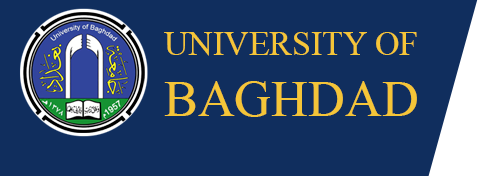The minister of higher education and scientific research, Mr. Ali Mohammed Hussein al-Adeeb , announced a new project to convert the medical complex in Bab al-Mudham into scientific medical edifice according to international standards including hospitals, research centers and specialized medical college. This came during his excellency’s presence in the national workshop to build capacities in the ethics of health and medical research set up by the department of research and development at the ministry of higher education in cooperation with the national center for cancer research at the university of Baghdad and the ministry of health, in coordination with the world health organization. The minister of higher education said that “the world in recent times focused on the adoption of information in the decision-making process, especially in the field of medical services, because of its effect in improving the level of health in community and evolution of health institutions and transfering the results of medical research”, also he added that the policies and health decisions based on fulfilling the needs of the health system, and that medical research plays as a source of information and it’s an important axis in promoting the level of health care by identifying the economic, social and environmental factors on health. He said that the challenges facing the health sector in light of the rapid developments taking place in the region at the regional level necessitated that the medical specialties committee in the body of scientific research at the ministry of higher education and scientific research to work on preparing a strategy for the system of medical research based a vision and goals that are achievable with the availability of information for health policy makers and decision-makers, noting that the science policy pursued by the committee for medical specialties aims to build typical research centers, equipped with various medical supplies and laboratories led by qualified staff through attracting scientific talents, providing a high-level working environment based the principle of partnership between researchers and research institutions both inside and outside Iraq on one hand, and between them and the society on the other. He explained that the establishment of the program of the national campaign for early detection of cancer at the ministry of higher education in 2009, and the inauguration of the national center for cancer research at the university of Baghdad in 2012 comes as a practical application of this scientific approach which relies on the basis of the scientific partnership by developing a database containing a system for storing information. This center includes in its membership: Iraq, Lebanon, Jordan and Egypt, noting that the regional countries seeking to join this project are: Oman, Kuwait, Saudi Arabia. He added that the strategic thinking of the ministry of higher education and scientific research after 2003 is to plan for re- infrastructure for scientific research and medical specialties through spending one billion dollars and giving priority to the medical specialties (120 billion dinars), including the establishment of university’s hospitals affiliated to the ministry, which are of the first rank in Iraq, that will serve as a model for educational projects which aim for the betterment of the health sector in the provinces of Baghdad, Mosul and Karbala, with a capacity of (600) beds equipped with the latest devices within the five-year plan to promote health reality according to scientific and international standards like that around the world. He noted that the ministry embarked on establishing the university of Jaber Bin Hayan in Najaf with an area of 200 acres comprising the colleges of medicine, dentistry, pharmacy, nursing, and the university’s hospital with the capacity of 600 beds, as well as the medical university of Ibn Sina in Baghdad with an area of 186 acres. For his part, the director general of the department of research and development, Dr. Mohamed Sarraj, said that the workshop aims to analyze the infrastructure of the ministries of health and higher education.
The minister of higher education announces ,during a workshop of medical capabilities, transforming Bab al-Mudham complex into a medical edifice including hospitals, medical research centers and specialized medical colleges
Comments are disabled.

